For example, A=10^17, B=10^17 (<64bits)
Typically, in the algorithm above, the calculs to compute F(2n) and those to compute F(2n+1) exceeds long long int types and we can't use modular computation in it.
The best algorithm to compute it I talk is fibonacci fast doubling:
F(0) = 0, F(1) = 1.
F(2n) = F(n)(2*F(n+1) – F(n)).
F(2n + 1) = F(n)2 + F(n+1)2.
Do you know some types in new C++14 (g++8.3.0 or llvm-clang C++) to use to avoid overflow.
I tried __float128 that is best than long double with no success. (see the g++ code above)
I have heard of the existence of __int128 and __int256 with no printf possibilities but I haven't try it.
Are they availailable in g++ 8.3.0 or are there other fast means to handle 128bits ints to do intermediate calculs you can think of?
(time perfs are important)
#include <bits/stdc++.h>
using namespace std;
__float128 a,b,c,d;
long long mod;
void fast_fib(long long n,long long ans[]){
if(n == 0){
ans[0] = 0;
ans[1] = 1;
return;
}
fast_fib((n/2),ans);
a = ans[0]; /* F(n) */
b = ans[1]; /* F(n+1) */
c = 2*b - a;
if(c < 0) c += mod;
c = (a * c); /* F(2n) */
while(c>=mod)c-=mod;
d = (a*a + b*b); /* F(2n + 1) */
while(d>=mod)d-=mod;
if(n%2 == 0){
ans[0] = c;
ans[1] = d;
}
else{
ans[0] = d;
ans[1] = c+d;
}
}
int main(){
int T=1000;
long long n;
while(T--){
scanf("%lld %lld",&n,&mod);
long long ans[2]={0};
fast_fib(n,ans);
printf("%lld\n", ans[0]);
}
return 0;
}
with __float128 I can't implement the modulo efficiently and a,b,c,d must store 128 bits data.
